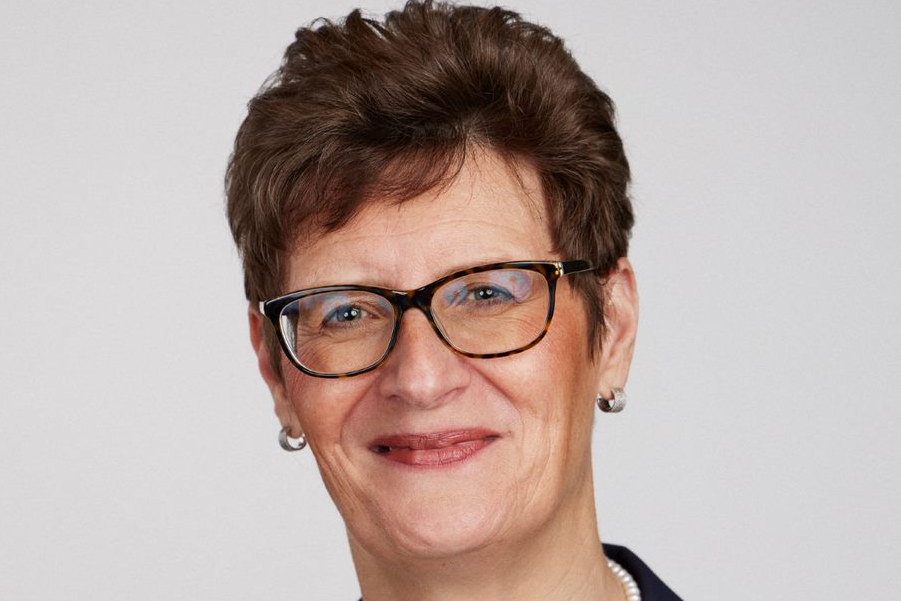Sonja Ebhart-Pfeiffer from the Austrian Association of Financial Planners gives women four golden money rules to follow on International Women's Day.
Even today, the basic tenor in Austria is still that financial matters are primarily a man's job. "Yet it is particularly important for women to take the reins in financial matters themselves," says Sonja Ebhart-Pfeiffer, board member at the Austrian Association of Financial Planners. After all, women bear a higher risk than men of getting into financial difficulties in the course of a separation or a stroke of fate.
Against this background, Ebhart-Pfeiffer is using International Women's Day on March 8 as an opportunity to give women four golden money rules to follow. In addition to her voluntary role in the association, she works full-time as a financial advisor at FiNUM Private Finance and therefore knows how things often look in practice.
Away with the rose-colored glasses when it comes to financial issues!
Anyone who relies too much on their partner in financial matters is likely to experience unpleasant surprises sooner or later. What to do when love fails? "In such cases, many women get into financial difficulties because they have only poorly dealt with the issue of money. They are then unable to maintain their accustomed standard of living on their own - if only because of their often low income," Ebhart-Pfeiffer recounts from her daily consulting practice.
Even today, it is often the case that men are responsible for long-term financial and investment planning, and women tend to manage the smaller day-to-day expenses. "As trivial as it sounds, dealing with one's own finances is the most important protection against financial disaster. First and foremost, the actual financial situation should be surveyed. It is important to define all income and expenses, and then in the next step to decide what monthly fixed amount to invest," advises the expert.
Pension splitting protects against old-age poverty in Austria
In the first years of their career, women's income grows in a similar way to that of men. During this time, women often also find the partner for life, with whom they finance their own home and fulfill their desire to have children. This often represents a free fall for the woman in financial terms. But it's not so much the maternity leave years she spends at home with their child, but rather the many years of only part-time work that take their toll on her when she retires at the latest. "This disadvantage can be improved by pension splitting, at least for the period of child-rearing," Ebhart-Pfeiffer advises women living in Austria. This means that the parent who does not devote himself to raising children can transfer up to 50% of his partial credit noted on the pension account to the parent raising the children. "Up to seven years of partial credits can be transferred per child. The application for pension splitting must be submitted by the youngest child's tenth birthday at the latest," Ebhart-Pfeiffer says. Different rules apply in Germany and Switzerland.
Women should dare to invest!
Due to the current record inflation and the still hardly existing interest on the savings account, consumers are losing a fortune through classic saving. That's why women should take the plunge into investing and dare to take a little more risk. Women are still more conservative in their investment behavior than men. "Risk-averse investment behavior is nothing bad per se. However, extreme caution leads to only very low returns, which is like destroying money, especially with high inflation," says Ebhart-Pfeiffer.
More initiative in salary negotiations!
Although the number of employed women is growing and they are increasingly outpacing men in terms of educational attainment, there is still a pay gap between the sexes. One indicator of this is Equal Pay Day, which this year fell on February 16 in Austria and March 7 in Germany. So women work for free for about the first two months of the year. While this is a structural problem, women can actively do something here to increase their chances of earning a higher income. "Many women do not proactively ask for salary increases, but wait until the supervisor comes to them. Since this happens in only the rarest of cases, occasions such as greater professional responsibility or successful projects should be actively used to talk about a salary increase. Who asks more often, increases also its chances , means Ebhart Pfeiffer. Men tend to act according to the motto "Cheekiness wins"... and get the desired salary increase!
ABOUT THE AUSTRIAN ASSOCIATION OF FINANCIAL PLANNERS
The Austrian Association of Financial Planners is a non-profit association that establishes, develops and promotes consulting standards for financial consulting and planning. It offers internationally recognized certifications in various areas of financial consulting and planning, such as European Investment Practitioner EIP®, European Financial Advisor EFA® and Certified Financial Planner CFP®, or specializations such as EFPA ESG Advisor® and Certified Foundation & Estate Planner CFEP®.



